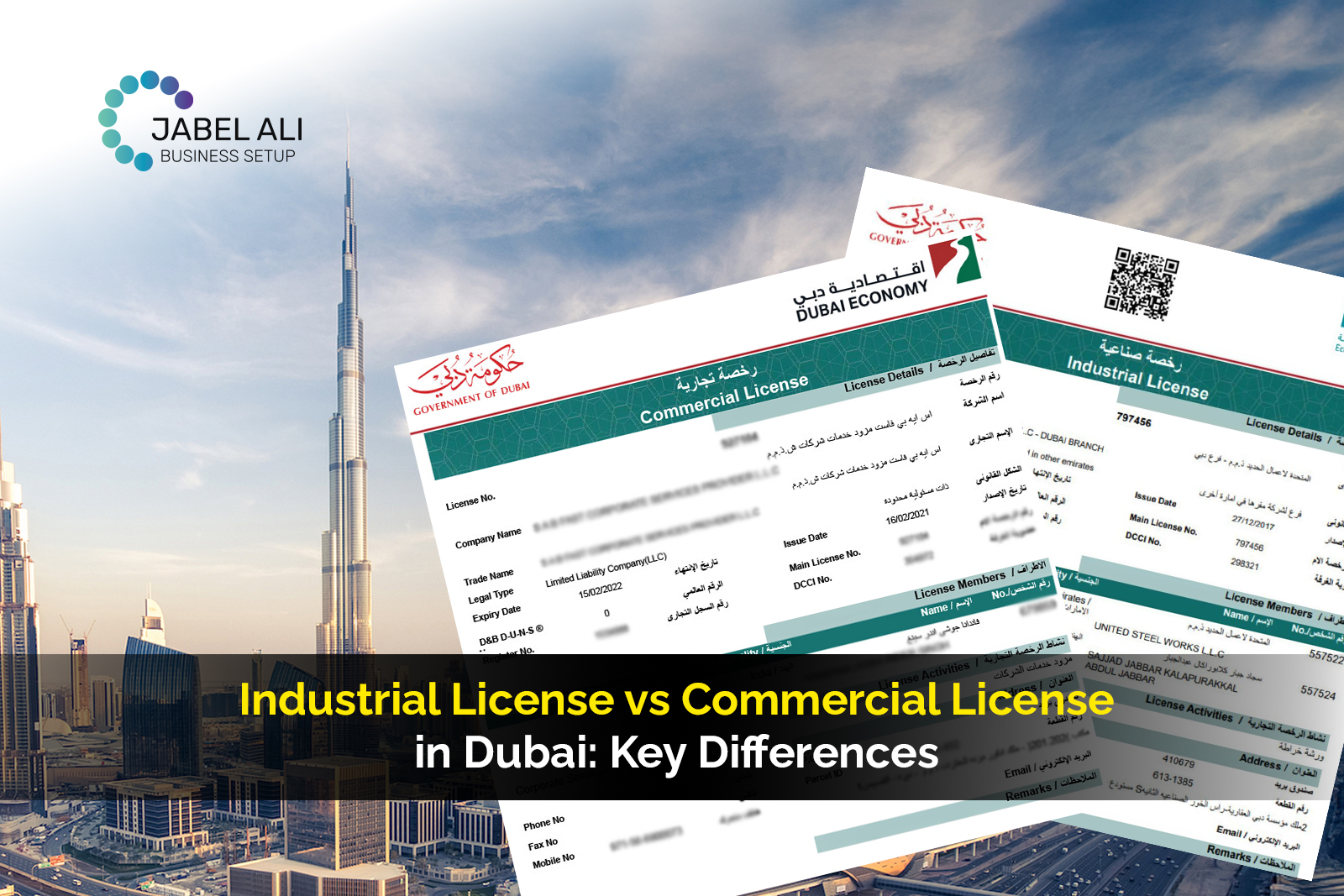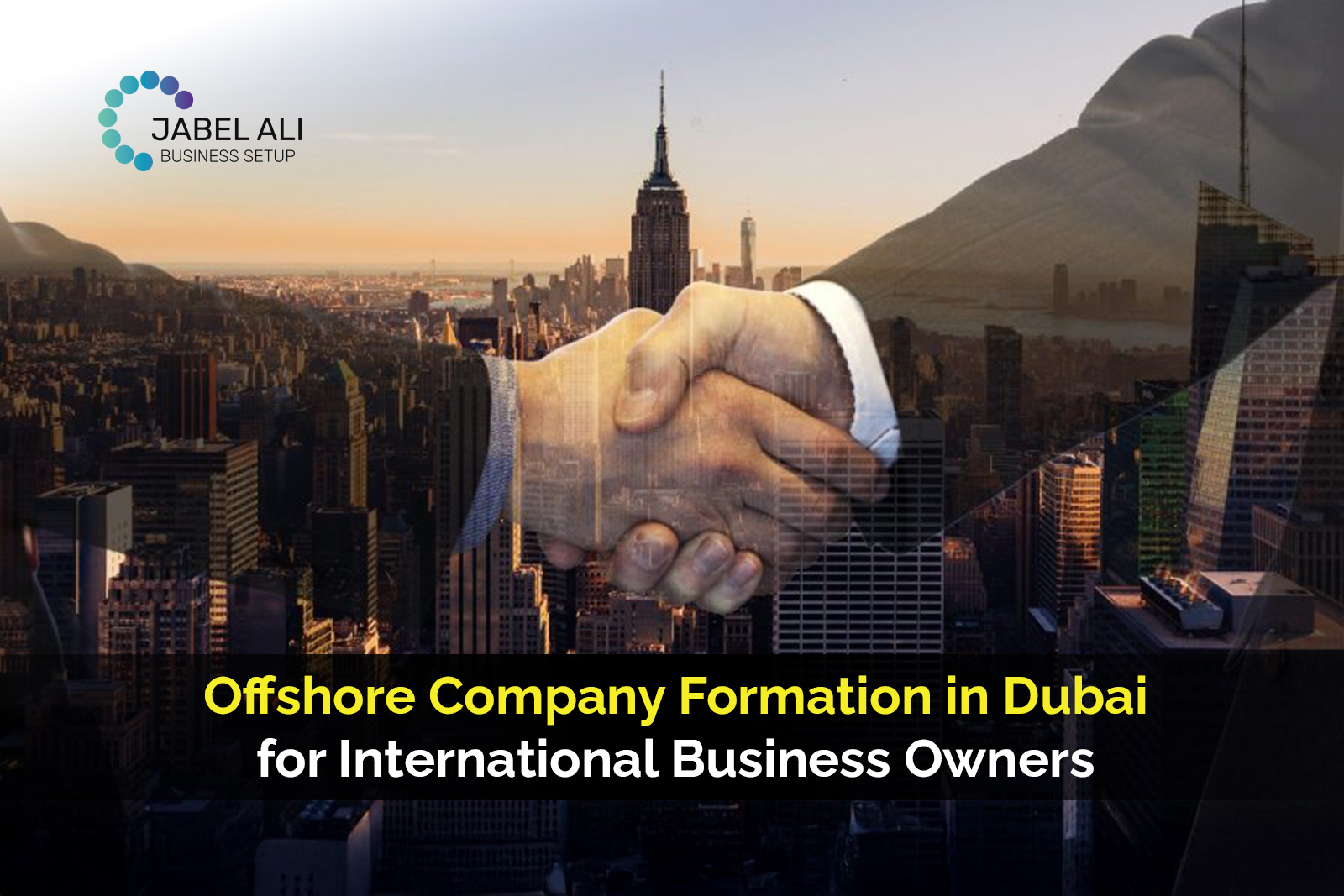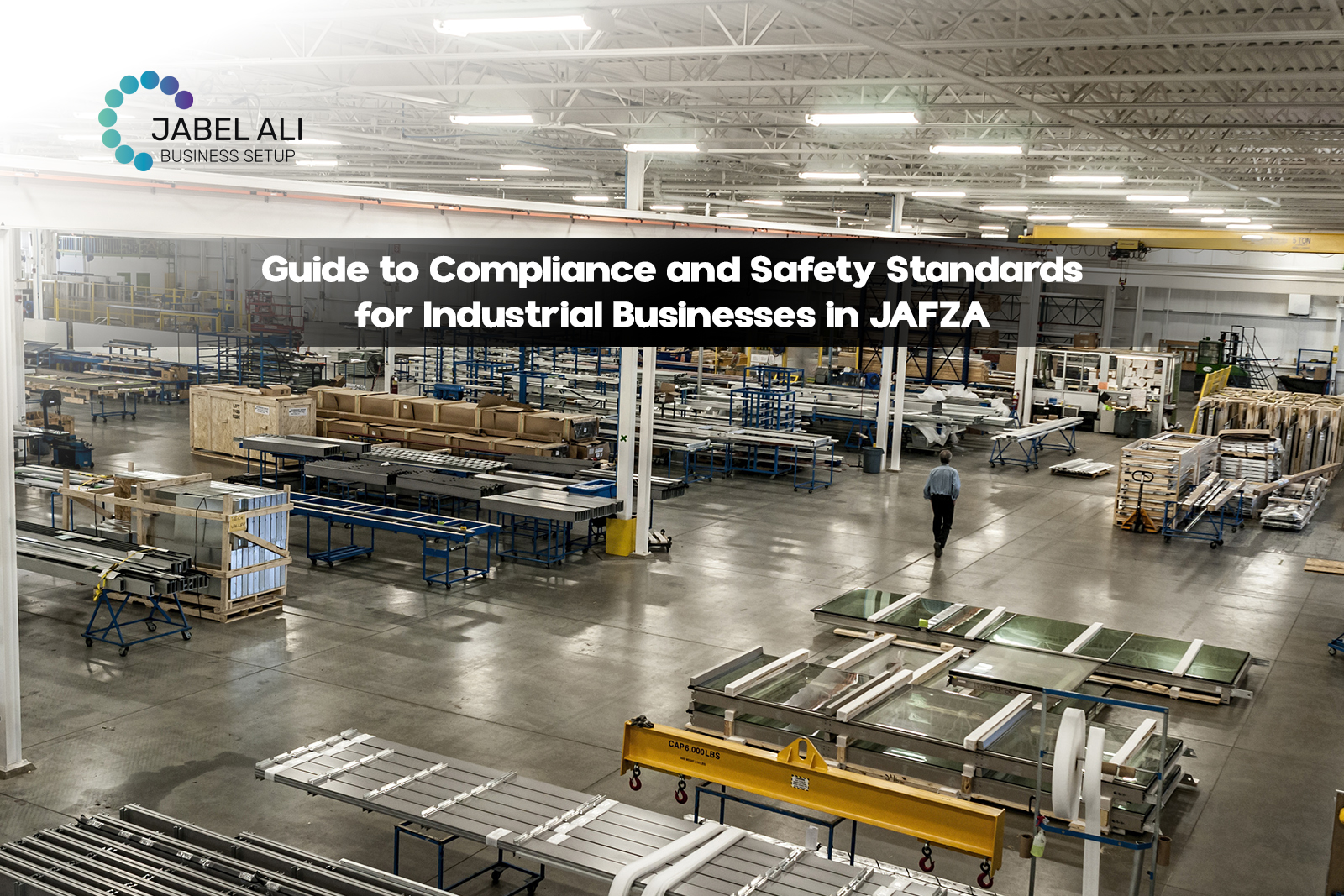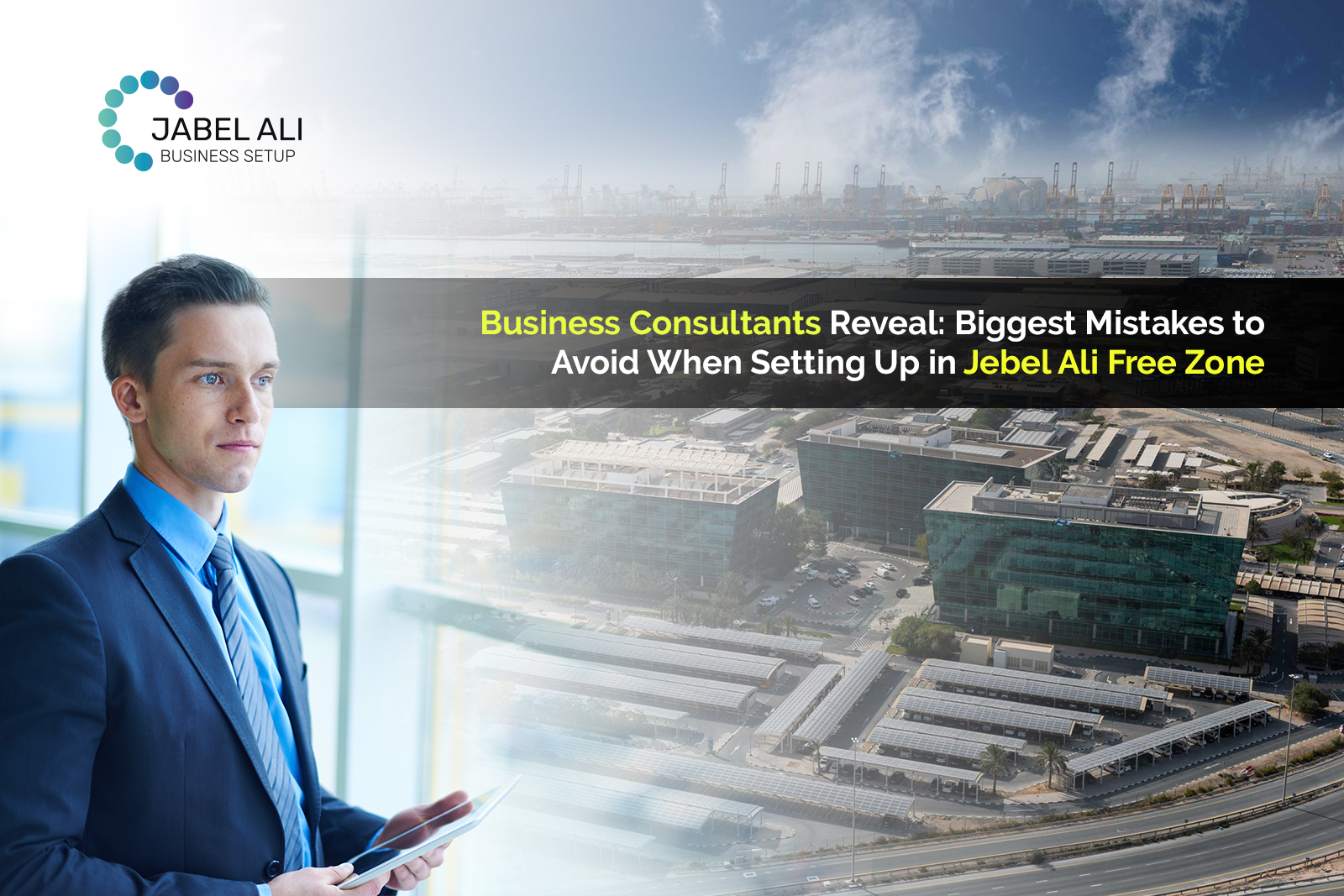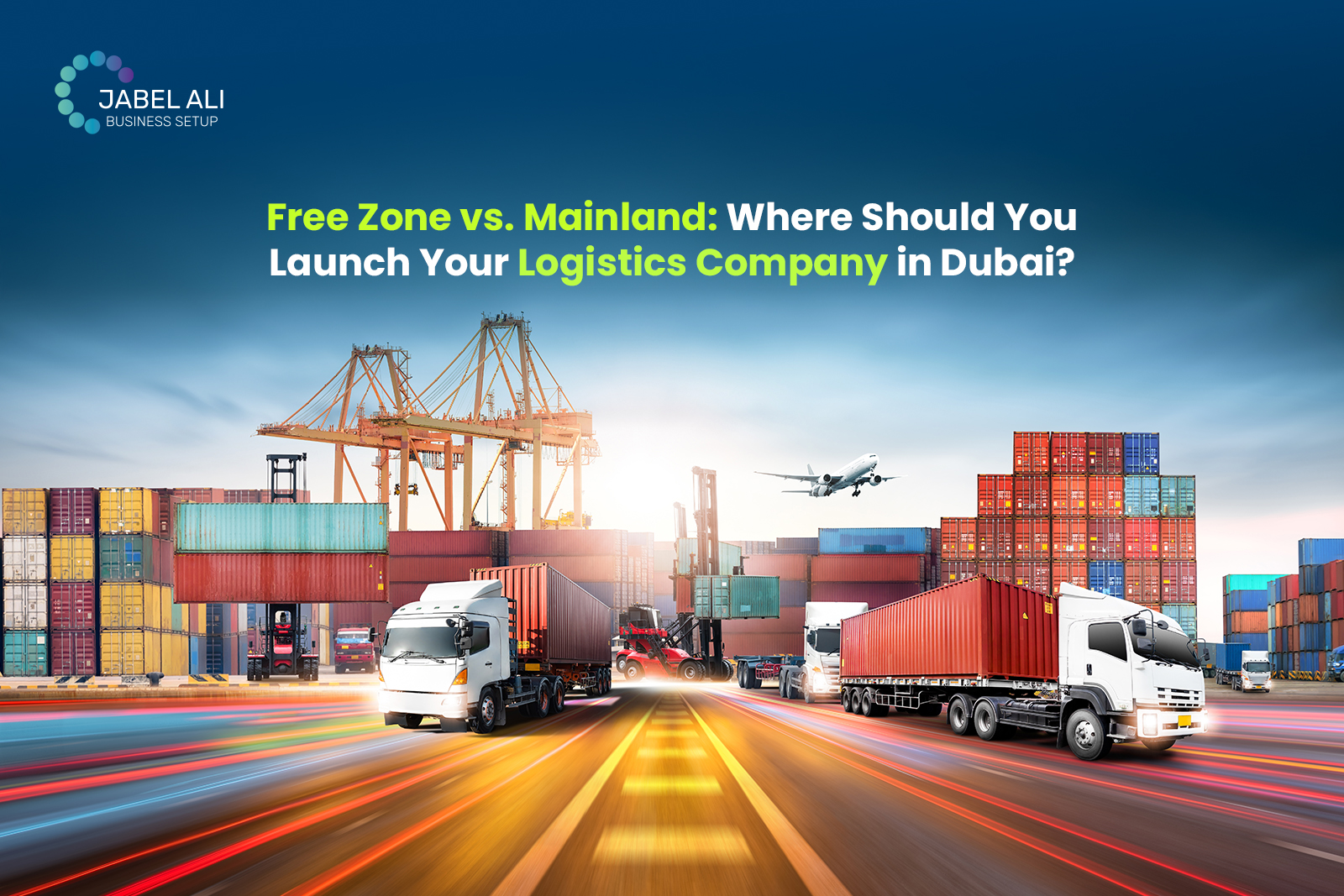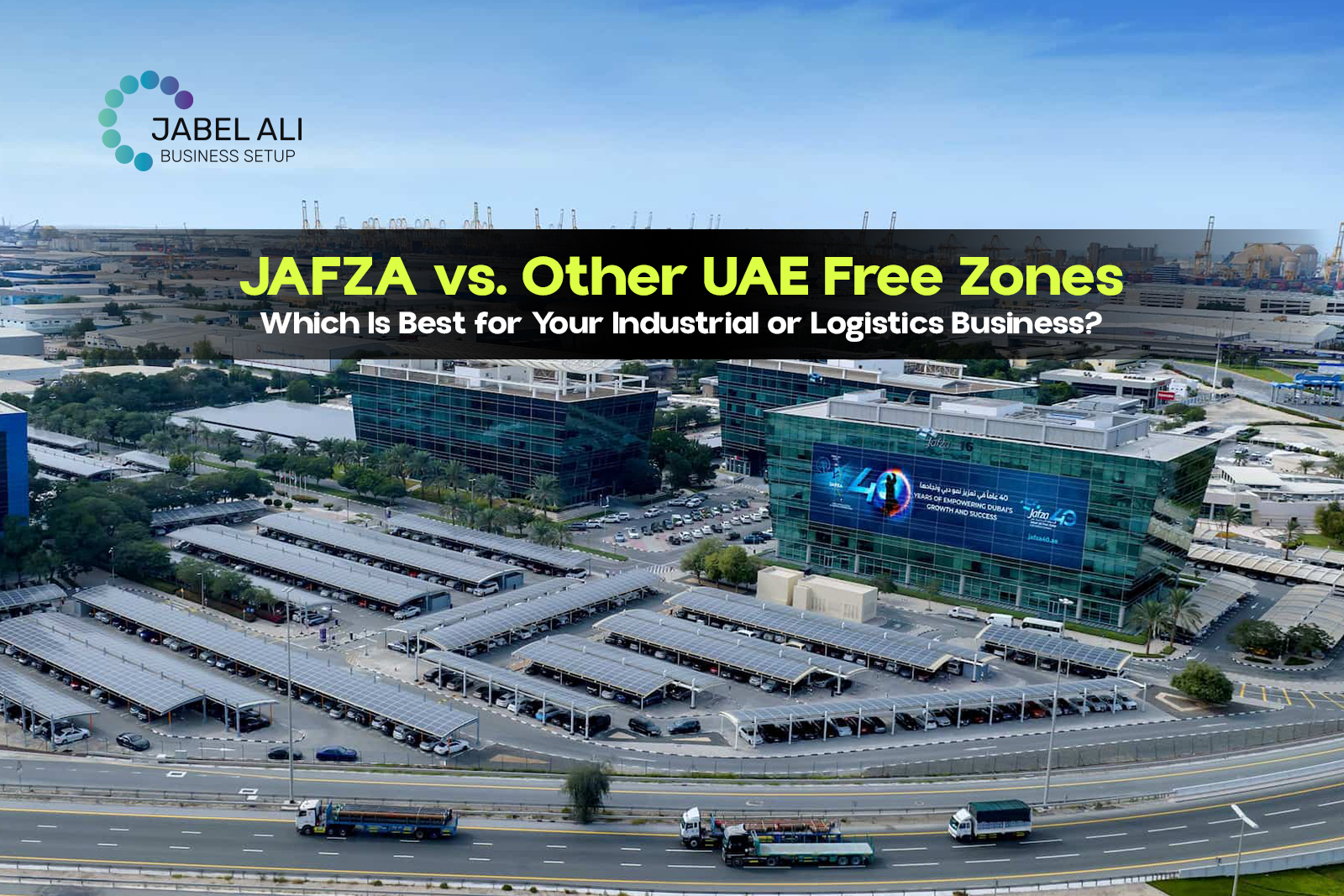Thinking of setting up in Jebel Ali Free Zone (JAFZA)? You’re not alone. As one of the oldest and most reputable free zones in the UAE, JAFZA attracts thousands of entrepreneurs and multinational companies looking for tax benefits, full ownership, and global connectivity.
But here’s the thing: While JAFZA offers big advantages, the setup process is filled with traps that even seasoned founders fall into. From misunderstandings about license types to underestimating compliance costs, one wrong move can delay your launch or burn through your budget.
So, before you rush into a Dubai free zone business setup, let’s break down the biggest JAFZA company formation mistakes – straight from UAE business consultants who’ve seen it all. Avoiding these errors can save you time, money, and serious headaches.
1. Choosing the Wrong License Type or Activity
Let’s start with the most common setup mistake in Jebel Ali Free Zone: selecting the wrong business license or activity.
JAFZA offers various license types, including trading, service, industrial, and e-commerce, among others. But not all licenses cover every activity. And if you pick the wrong one, you could end up restricted from doing core parts of your business, or worse, face penalties later during inspections or renewals.
For example, some entrepreneurs apply for a general trading license, thinking it covers everything. But if your actual operation involves importing medical devices or offering software services, you’ll need specific activity approvals or even extra clearances. UAE company registration isn’t just paperwork—it’s tied to strict regulatory boundaries.
Free zone business setup errors like these can snowball. You may face delays in customs clearance, trouble opening a business bank account, or even fines for non-compliant activity.
What to do instead? Work with experienced UAE business consultants who understand the latest JAFZA regulations. They’ll help align your commercial goals with the right license and activity code, saving you from costly course corrections later.
2. Underestimating JAFZA Business Setup Costs
A lot of businesses jump into Jebel Ali Free Zone company formation thinking it’ll be a flat, one-time fee. But the real cost of setting up in JAFZA depends on multiple variables, including license type, office space, visa quotas, share capital requirements, and more.
Here’s the catch: JAFZA has a mandatory office or warehouse requirement, unlike some other UAE free zones that allow virtual setups. That means your rent is part of your recurring annual costs, and it’s not optional.
Then there’s the refundable share capital (often starting from AED 500,000 for FZCOs), visa deposits, Emirates ID and medical processing, and of course, your actual business licensing fees. If you’re not prepared for these, your budget can spiral fast.
We’ve seen entrepreneurs stall their launch halfway because they only accounted for license costs and missed the overheads. These kinds of JAFZA company formation mistakes are avoidable, but only if you know what to expect.
The smart move? Get a full breakdown from reliable UAE business consultants before you commit. That way, you’re not scrambling to cover unexpected costs when you’re supposed to be focused on growth.
3. Choosing the Wrong Business Activity or License Type
Picking the wrong business activity is one of the most common and costly business setup mistakes in JAFZA. On paper, it might seem like a formality. But in reality, your business activity determines everything from what services you can offer to what approvals you’ll need and even the kind of office space you’re required to lease.
For example, if you plan to import and sell electronic goods, you’ll need a trading license, not a service license. Sounds obvious, but we’ve seen companies get stuck because they selected the wrong category and had to restart the licensing process from scratch.
Another mistake? Overestimating the number of activities you need. Some founders select every possible category, thinking it provides “flexibility,” but this actually increases costs, paperwork, and scrutiny from authorities without adding real value.
Dubai business licensing, especially in free zones like JAFZA, is not one-size-fits-all. The process is structured, and there’s very little wiggle room. The only way to get it right the first time is to work with experienced UAE business consultants who know how to match your business model with the right structure and license.
4. Underestimating JAFZA Business Setup Costs
A lot of entrepreneurs jump into JAFZA company formation, thinking it’s going to be a flat fee and done. In reality, JAFZA business setup costs can vary widely depending on your license type, office space, number of visas, and whether you need external approvals or custom warehouse setups.
For instance, while the starting cost for a basic Dubai Free Zone business setup might seem low, you’ll need to factor in hidden expenses like:
- Mandatory office lease or flexi-desk rental
- Visa quotas and processing fees
- Establishment card costs
- Annual license renewal
- Health insurance (required for employee visas)
- Customs code registration (for trading companies)
Not budgeting for these upfront is a common Jebel Ali Free Zone business mistake. It can throw off your cash flow early on and lead to delays or even license suspension if you can’t meet renewal or visa costs on time.
The fix? Get a clear breakdown from a trusted UAE business consultant before you commit. A good advisor will walk you through all the line items and help you avoid surprises.
6. Ignoring JAFZA’s Office Space and Facility Requirements
Unlike some other Dubai free zones, Jebel Ali Free Zone (JAFZA) has specific infrastructure rules tied to your license and business activity. One of the biggest free zone company setup mistakes is underestimating the importance and cost of meeting these requirements.
For example, certain license types in JAFZA require leasing a physical warehouse, showroom, or office within the zone itself. A flexi-desk might work for a consultancy firm, but if you’re in trading, logistics, or manufacturing, you’ll likely need a larger facility approved by the authorities.
What this really means is: if you budget only for the license fee and skip facility costs, you’re setting yourself up for trouble. Your application might be delayed or even rejected.
Some businesses also rent more space than needed, driving up overhead unnecessarily. That’s why smart planning and local insight go a long way.
Before you finalise your JAFZA business setup, get clarity on the minimum facility obligations linked to your license and activity. This one decision can significantly impact your JAFZA business setup costs and overall viability.
7. Misunderstanding Shareholding Rules and Ownership Structure
Many investors assume that all free zones operate the same way when it comes to ownership, but JAFZA has its own rules, especially if you’re considering setting up a Free Zone Establishment (FZE) or Free Zone Company (FZCO).
One common mistake? Not aligning the number of shareholders with the legal entity you’re applying for.
- FZE allows for only one shareholder (individual or corporate).
- FZCO requires two or more shareholders.
Simple? Yes. But overlooking this leads to delays, rejected applications, or being forced to restructure your company mid-process.
Another issue is when corporate shareholders are involved. JAFZA has strict documentation requirements, including notarised board resolutions, parent company documents, and authorised signatories—all of which must be attested in the investor’s home country and in the UAE. Missing even one piece can stall your UAE company registration for weeks.
If your ownership structure isn’t planned correctly from day one, it can trigger compliance problems later, especially during audits, license renewals, or visa applications.
Want to avoid these headaches? Speak with UAE business consultants who understand the fine print before you submit anything.
8. Underestimating JAFZA Business Setup Costs
JAFZA offers serious advantages – 100% foreign ownership, proximity to Jebel Ali Port, global credibility. But it’s not the cheapest free zone out there. Many entrepreneurs walk in expecting minimal costs and end up being blindsided by the actual expenses.
Here’s what often gets missed:
- Office requirements: Unlike other free zones that allow flexi-desks or virtual offices, JAFZA typically requires physical office space or warehousing, depending on the license type. That means higher initial costs.
- Customs registration fees if you’re trading goods.
- Security deposits, visa quotas, medicals, Emirates ID processing—these add up fast.
- Plus, annual renewals are not always flat-rate. They vary based on office size and activity.
Failing to obtain a detailed JAFZA business setup cost estimate can lead to budget overruns and cash flow issues before your company even begins operations.
The smart move? Work with experienced UAE business consultants who’ve handled Jebel Ali Free Zone setups and can walk you through all the expenses, not just the license fee.
9. Neglecting to Understand Dubai Business Licensing Requirements
Jebel Ali Free Zone has its own licensing rules that don’t always line up with other Dubai free zones or the mainland. This is where many newcomers trip up.
Not every business activity is allowed, and some require special approvals. For example, if your setup involves trading, logistics, or manufacturing, the licenses and permits differ, and missing a detail can delay your UAE company registration.
Also, keep in mind that JAFZA licensing covers your activity within the free zone and internationally, but it does not allow direct trade into the UAE mainland without a local distributor or partner.
Failing to fully grasp these nuances is one of the most common Dubai business setup mistakes in JAFZA.
Make sure you get clear guidance on what license fits your business model, what activities are permitted, and what additional approvals you might need to avoid surprises.
10. Underestimating JAFZA Business Setup Costs
Setting up a company in Jebel Ali Free Zone can be cost-effective, but only if you plan ahead. Many entrepreneurs overlook hidden or recurring expenses, which leads to budget issues down the line.
Beyond the initial JAFZA company formation fees and license costs, you’ll need to factor in office or warehouse rentals, visa fees, insurance, and annual renewals. These can add up quickly and impact your cash flow if you’re not prepared.
Ignoring these costs is a classic free zone company setup mistake that can stall your operations or even force you to rethink your setup later.
Getting a detailed, transparent cost breakdown upfront, ideally from experienced UAE business consultants, is key to avoiding financial surprises.
Conclusion
Setting up a business in Jebel Ali Free Zone offers plenty of advantages, but it’s not without its challenges. Avoiding common pitfalls, from misunderstanding licensing requirements to underestimating costs, can save you time, money, and headaches down the line.
By knowing what mistakes to watch out for, you’ll be better positioned to build a smooth, compliant, and successful operation in one of Dubai’s top free zones.
If you want expert support to navigate the complexities and set up your company right the first time, the team at Jebel Ali Business Setup is here to help. Reach out today to get tailored advice, clear guidance, and hands-on assistance for your JAFZA business formation journey.Don’t let common errors slow you down—partner with professionals who know the ins and outs of Dubai Free Zone Business Setup.



